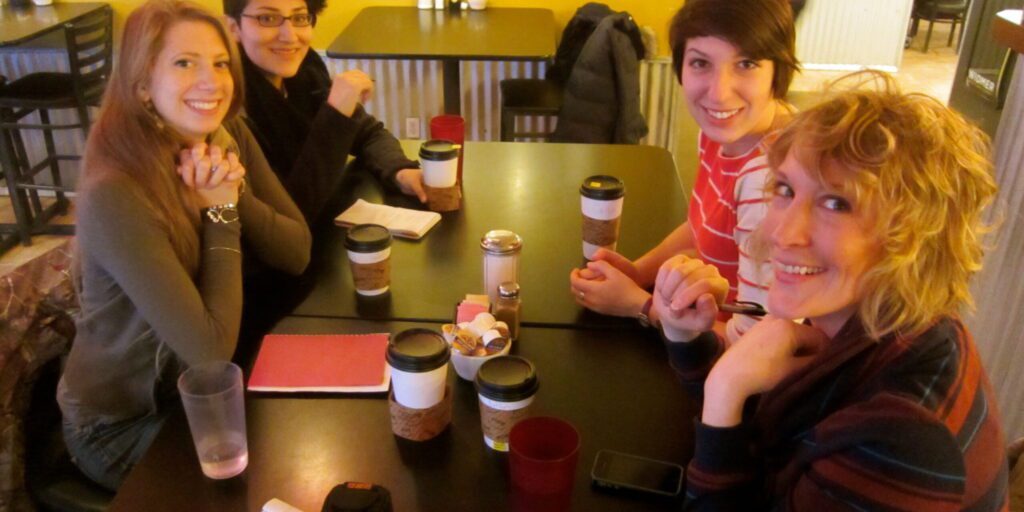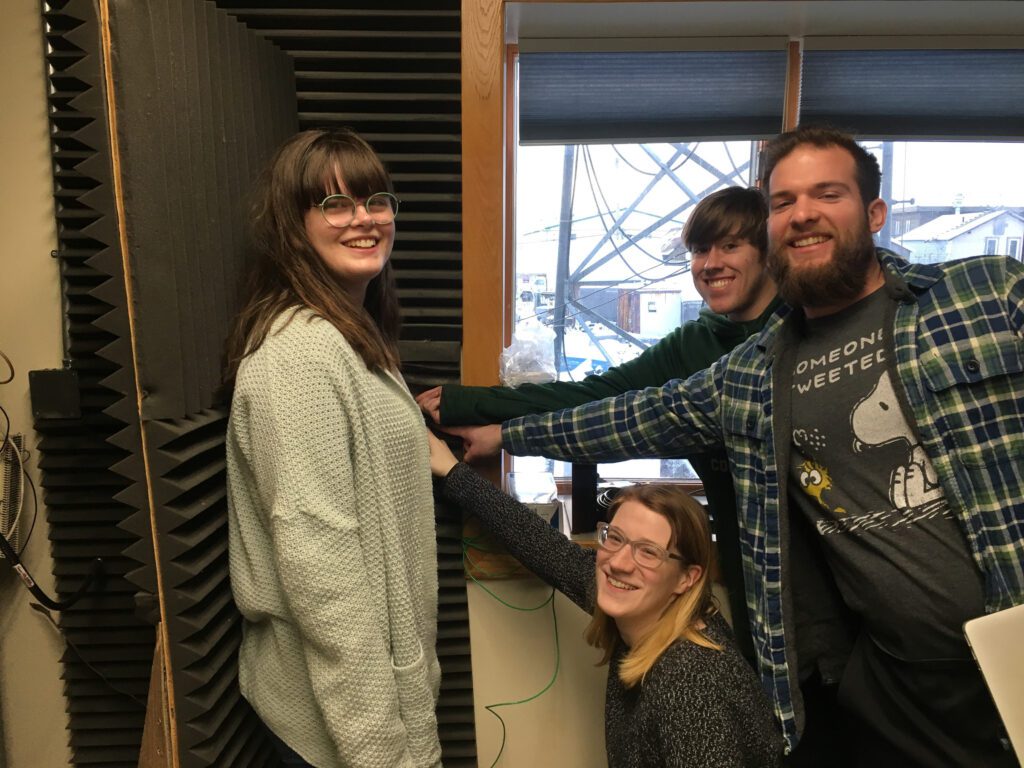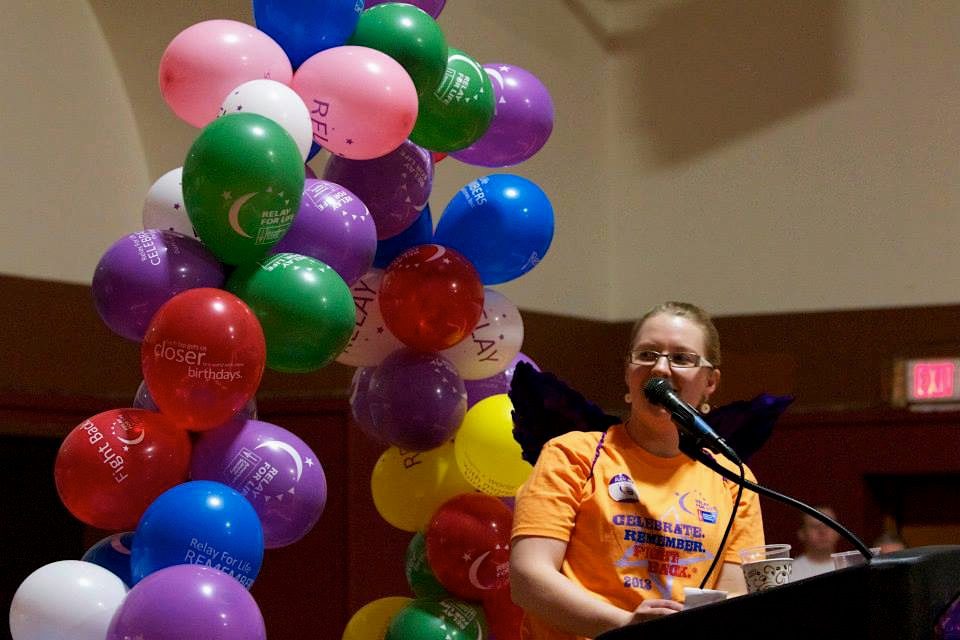I’ve never been very good at asking people for help. I’m too stubborn. Call it a combination of my upbringing with fierce individualism, but I’ve lived most of my life under the belief that asking for help equates to my failure to be self-sufficient.
If this sounds harsh and ridiculous it’s because it is. By these standards, I’ve failed a lot in my life.
Small-town living in the Alaskan frontier is a fine balance between rugged individualism and communal-caring, the latter of which requires a lot of collaboration with people I don’t even know. In this sense, living in Nome and accepting a volunteer position at KNOM– where I am constantly at the mercy and generosity of others– has been one of the most humbling experiences of my life. I constantly have to ask people for help, whether it’s to voice a radio spot for me or to pull a four-wheeler out of a ditch, and someone is always willing to help me.
There is a difference between asking for personal favors and asking for favors that will benefit others. The first one remains a little difficult for me, but the latter has become a lot easier.
I’m often asked by friends and family: how did you learn to do your job? You’ve got guts, yes, but you had no experience in broadcasting or audio engineering. and the last time you fundraised for anything was when you were in high school drama and sold all those ridiculous candy bars that no one liked but bought out of pity. You are scared of microphones, crowds, and bears. How is it that you are doing everything that you are doing?
To this my answer is simple: observation.
I’ve spent the last year and a half observing and learning from people who know what they are doing. This not only extends to work at KNOM or my outdoor escapades (make noise so the bear will hear you coming, make noise so the bear will hear you coming…) but also in fundraising for community projects.
Asking for help is an art and a talent, an especially valuable one in the non-profit world. You have to know how to use words. Don’t be scared to speak up. If you are approaching individuals face to face to ask for help, you have to teach your body language not to betray your fear of rejection. Should you be rejected, don’t take it personally. Yes is yes, no is no, and words are just words. That’s all. Oh, and you can’t be self-conscious. You have to turn off the voices in your head that tell you, “stop asking for handouts! It’s unfair! It’s shameful! Why should anybody help you, why can’t you do this yourself?” For some of us these voices are loud and overwhelming and it takes a bit of training to turn them off long enough to get anything done because here’s the kicker: it’s impossible to do everything yourself. Impossible. So whether you want to or not, sooner or later you have to learn to turn those voices off and ask for help.
Lately I’ve found myself asking people for help a lot.
To fund the Children’s Creative Writing Contest I reached out to anyone I could. I called people up. Met face-to-face. I used social media to spread the word and asked and asked and asked. Please help me make flyers, please make all these phone calls. I need helping getting all these items, it’s for a good cause. Every time I asked for help my stomach got into a knot, then unraveled. Soon enough donations came from strangers, family, and friends; close friends, distant friends, wealthy friends, not-so-wealthy friends, friends with jobs, friends with no jobs, friends in service. Some donations were from people who don’t even like me. I’m not kidding: people who have openly told me they cannot stand me sent packages with items on my wish list. How is this possible? How can someone who doesn’t even like me want to help me? Weird.
Asking for help puts you in a vulnerable position. That’s why it’s so hard. And should someone come to your aid, what can you give in return? How do you repay this kind of kindness that comes with no strings attached? (I recently watched a TED video about this by AmandaPalmer. If you get a chance, check it out.)
Working a karma economy is hard when you live in a world that functions from a strict give-and take policy, but it’s not impossible. There is no price-tag on social collaborations. I believe that for the most part, when people connect with you and understand where you come from, they want to help you. Sometimes they can’t, but if they can they will try. Then there are times you don’t even ask for anything but people do things for you anyway. Just take a look at the KNOM staff kitchen, filled with my favorite food groups: chocolate, cheese, and assorted popcorn. All from our wonderful donors. We even got a wreath, all the way from Maine. I didn’t eat the wreath but it’s pretty to look at. You can practically smell Maine from studio A. Pine. Yum.
Where this kindness comes from, I can’t explain. I guess sometimes all we can do is count our blessings, say “thank you”, commit to paying it forward and move on.







